
Tabarka: Tunisia's Coastal Gem
Tabarka is a hidden treasure on Tunisia's northwestern coast. This charming town is known for its stunning beaches, vibrant marine life, and rich history. The azure waters and golden sands make it a perfect destination for sun-seekers and water sports enthusiasts. Stroll through the picturesque old town, where you will find quaint streets lined with whitewashed houses and colorful markets. The Genoese Fort, perched on a hilltop, offers breathtaking views of the Mediterranean Sea and is a testament to the town's storied past. For nature lovers, Tabarka is surrounded by lush forests and rolling hills. The nearby Kroumirie Mountains are ideal for hiking and exploring. Don't miss the annual jazz festival, which attracts music lovers from around the world and adds a lively rhythm to this serene destination.
Local tips in Tabarka
- Visit during the summer months to enjoy the best weather and the lively jazz festival.
- Explore the underwater world with a snorkeling or diving trip to see the rich marine life.
- Take a hike in the Kroumirie Mountains for breathtaking views and fresh air.
- Try the local seafood at one of the many seaside restaurants.
- Wear comfortable shoes for exploring the old town's cobbled streets.
Tabarka: Tunisia's Coastal Gem
Tabarka is a hidden treasure on Tunisia's northwestern coast. This charming town is known for its stunning beaches, vibrant marine life, and rich history. The azure waters and golden sands make it a perfect destination for sun-seekers and water sports enthusiasts. Stroll through the picturesque old town, where you will find quaint streets lined with whitewashed houses and colorful markets. The Genoese Fort, perched on a hilltop, offers breathtaking views of the Mediterranean Sea and is a testament to the town's storied past. For nature lovers, Tabarka is surrounded by lush forests and rolling hills. The nearby Kroumirie Mountains are ideal for hiking and exploring. Don't miss the annual jazz festival, which attracts music lovers from around the world and adds a lively rhythm to this serene destination.
When is the best time to go to Tabarka?
Iconic landmarks you can’t miss
Aiguilles of Tabarka
Explore the breathtaking beauty of the Aiguilles of Tabarka, a stunning nature preserve showcasing unique rock formations and turquoise waters.
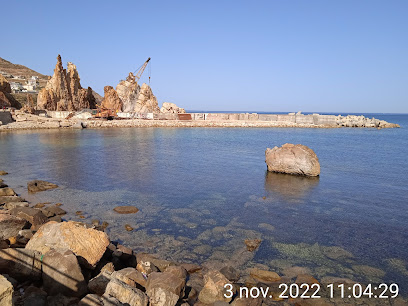
منارة طبرقة
Explore Manarat Tabarka, a stunning historical landmark in Tunisia that offers breathtaking views and rich cultural heritage.
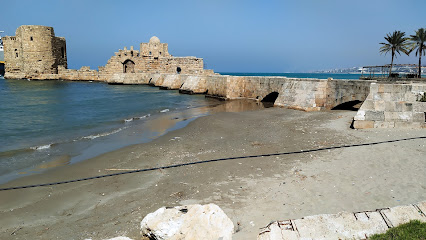
Tabarka Lighthouse
Explore the historic Tabarka Lighthouse, a stunning coastal gem offering breathtaking views and a glimpse into Tunisia's maritime heritage.
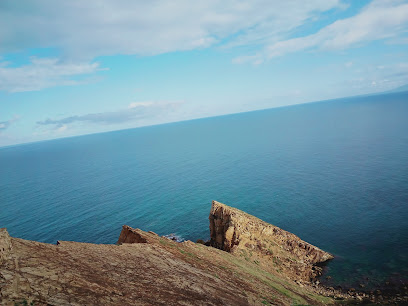
Statue I Love Tabarka
Explore the vibrant 'I Love Tabarka' statue, a stunning symbol of community love and a must-visit for tourists in this charming coastal town.
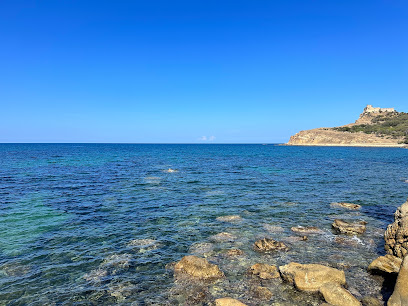
Unmissable attractions to see
Aiguilles of Tabarka
Explore the stunning Aiguilles of Tabarka, a breathtaking nature preserve with unique rock formations and vibrant marine life along Tunisia's captivating coast.
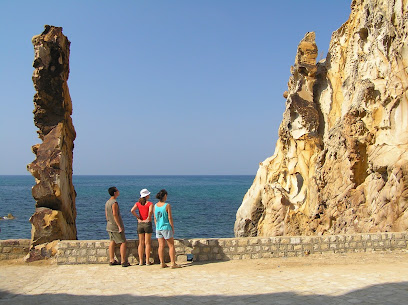
منارة طبرقة
Discover the historical charm of Manara Tabarka, a stunning landmark that offers breathtaking views and a rich cultural experience in Tunisia.
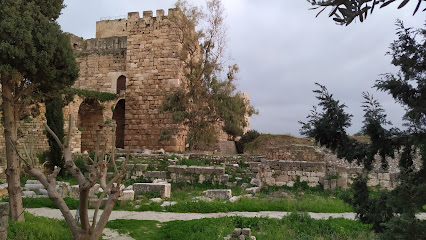
KIDREAM PARK
Experience endless fun at KIDREAM PARK in Tabarka, Tunisia—an amusement park filled with thrilling rides, vibrant attractions, and family-friendly entertainment.
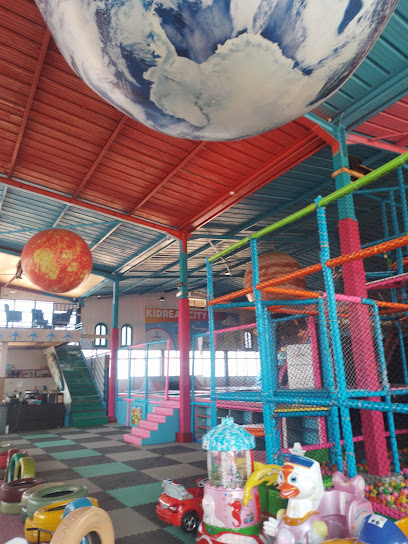
Kornich Tabarka
Experience the natural beauty and cultural charm of Kornich Tabarka, a coastal park offering stunning Mediterranean views and relaxing recreational activities.
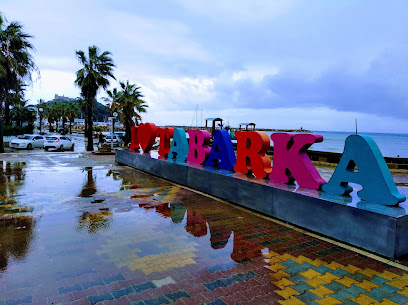
Cap Tabarka
Discover the stunning coastal beauty and rich history of Cap Tabarka, Tunisia's hidden gem perfect for adventure and relaxation.
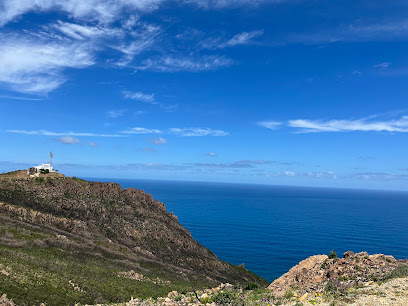
Vue Tabarka
Experience breathtaking views and rich cultural heritage at Vue Tabarka, a must-visit tourist attraction in Tunisia.
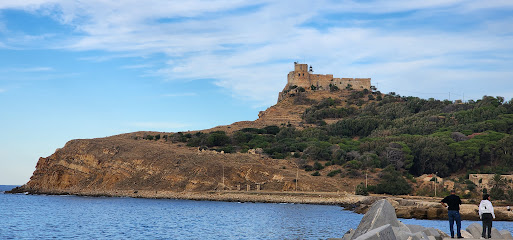
Tabarka Lighthouse
Explore the breathtaking beauty and rich history of Tabarka Lighthouse, a stunning coastal attraction in Tunisia, offering spectacular sea views and cultural immersion.
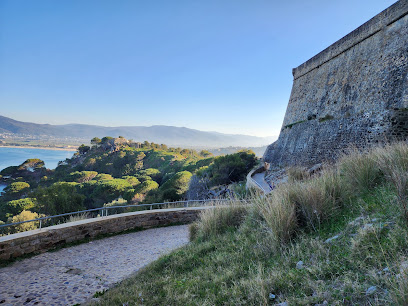
Hannibal 2
Experience the captivating blend of culture and coastal beauty at Hannibal 2, a premier tourist attraction in scenic Tabarka, Tunisia.
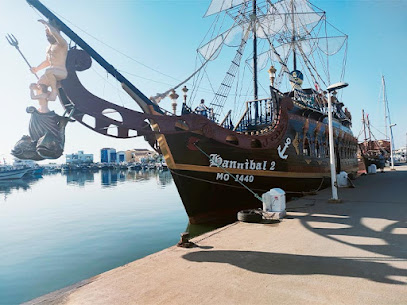
balade sur l'oued el kebir
Explore the serene beauty of the Oued El Kebir in Tabarka, Tunisia, the only river adventure that promises tranquility and breathtaking landscapes.
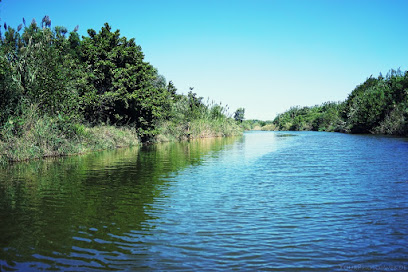
sonya flowers Tunisie
Discover the enchanting world of edible flowers at Sonya Flowers, a unique botanical garden in Tabarka, Tunisia, perfect for nature and food lovers.
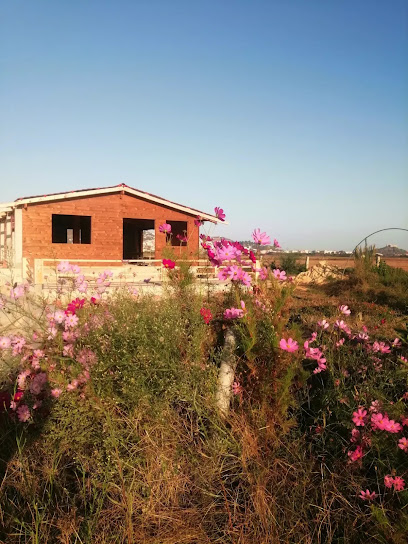
Espace de camping tabarka
Experience the natural beauty and cultural richness of Espace de Camping Tabarka, a perfect getaway in scenic Tabarka, Tunisia.
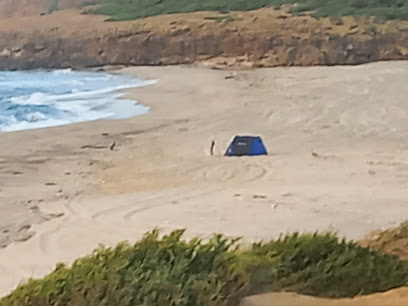
Corniche Tabarka
Experience the breathtaking coastal views, rich culture, and delicious cuisine at Corniche Tabarka, a must-visit destination in Tunisia.
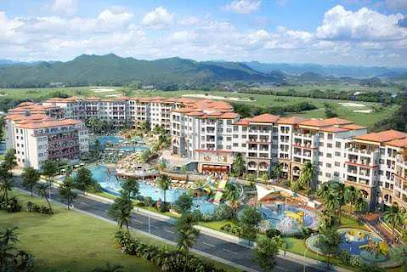
Cité Morjen
Explore the enchanting Cité Morjen in Tabarka, Tunisia, where history meets stunning Mediterranean beauty.

Boat Roundabout
Explore the Boat Roundabout in Tabarka, a serene tourist attraction offering stunning views and a glimpse into the local maritime culture.
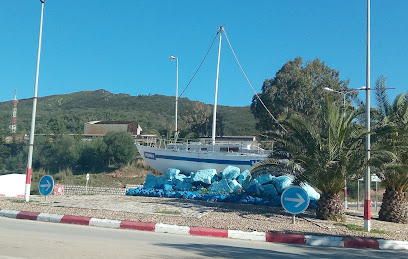
منتزه طبرقة
Explore the lush landscapes and serene atmosphere of منتزه طبرقة, a hidden gem in Tabarka, Tunisia, perfect for relaxation and outdoor activities.

Essential places to dine
PureNature TABARKA
Discover authentic Tunisian flavors and thrilling outdoor adventures at PureNature TABARKA—your ultimate destination in Tabarka.
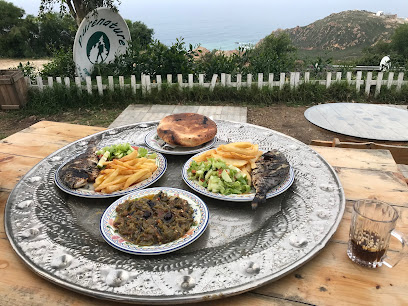
Restaurant La Belle Vue
Experience exquisite Tunisian cuisine with stunning Mediterranean views at Restaurant La Belle Vue in Tabarka.
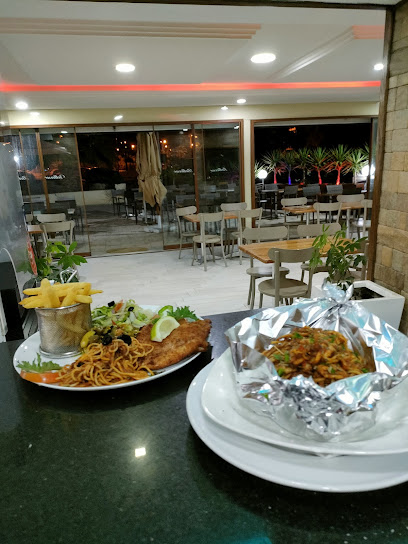
Restaurant Al MNARA
Discover authentic Tunisian flavors at Restaurant Al MNARA in Tabarka – where culinary excellence meets stunning coastal views.
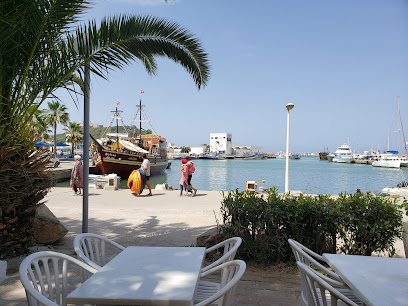
restaurant touta - مطعم توتة
Experience the authentic taste of Tunisia at Restaurant Touta in Tabarka – where fresh ingredients meet traditional recipes.
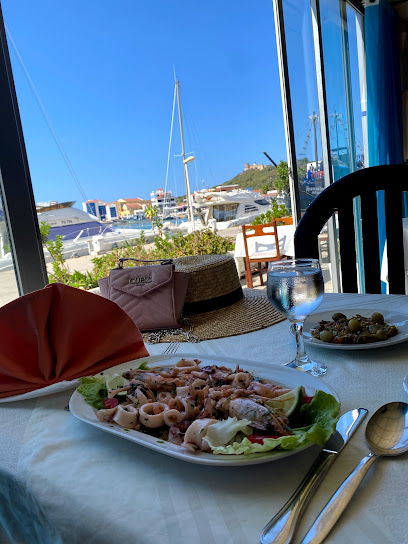
Café Resto Chahrazed
Discover the flavors of Tunisia at Café Resto Chahrazed in Tabarka – where local cuisine meets warm hospitality.
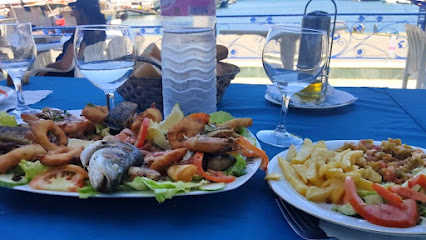
Restaurant Samara
Discover authentic Tunisian cuisine at Restaurant Samara in Tabarka - where every dish tells a story.
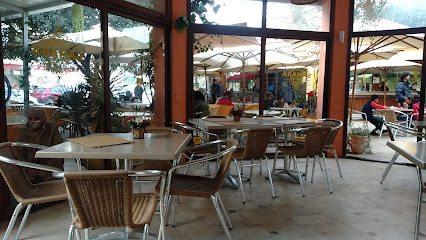
Restaurant & Café Al Mnara Tabarka
Discover authentic Tunisian flavors at Restaurant & Café Al Mnara in scenic Tabarka – a culinary haven by the sea.
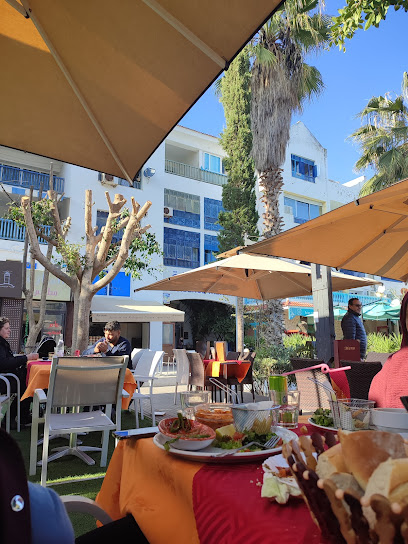
La Foresta R17
Experience authentic Tunisian cuisine at La Foresta R17 – where every meal is a celebration of flavor and culture.
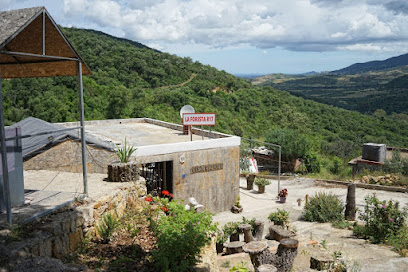
Mouldi Restaurant
Savor authentic Tunisian cuisine at Mouldi Restaurant in Maloula, where every dish is a celebration of local flavors.
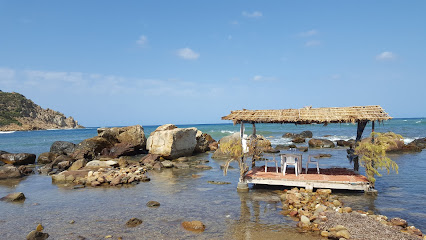
café zmen
Experience the essence of Tabarka at Café Zmen - where every sip tells a story amidst stunning coastal views.
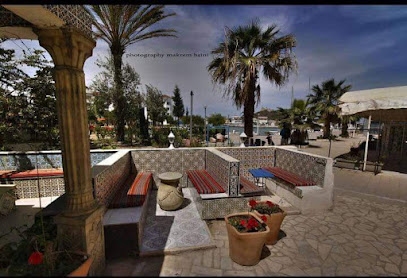
Restaurant le Mondial - مطعم المونديال
Discover exquisite Tunisian flavors at Restaurant le Mondial in Tabarka's beautiful marina setting.
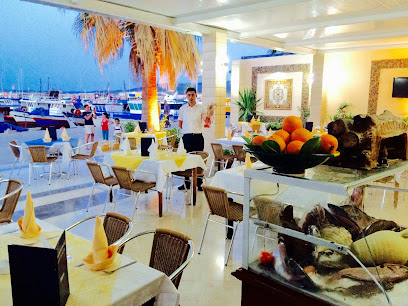
Restaurant La Reine
Experience authentic Tunisian flavors at Restaurant La Reine in beautiful Tabarka - where every meal tells a story.
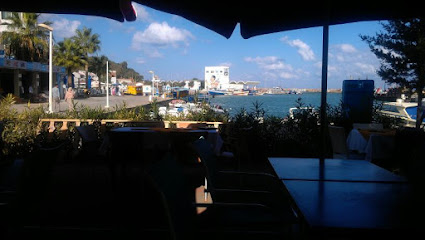
beach club coffee
Discover Corail Royal Beach Club Coffee in Tabarka – where relaxation meets exceptional flavors amidst stunning Mediterranean views.
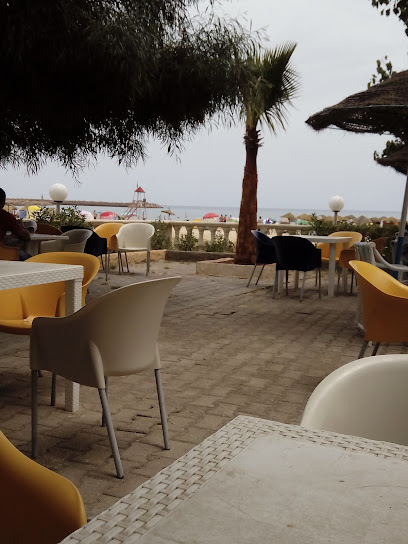
Restaurant Le Crocodile
Experience the best of Tunisian cuisine at Restaurant Le Crocodile in Tabarka—where fresh seafood meets local flavors in a charming atmosphere.
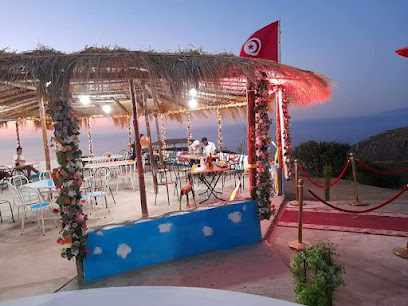
Resto Le Palmier
Experience the flavors of Tunisia at Resto Le Palmier in Tabarka – where local cuisine meets warm hospitality.
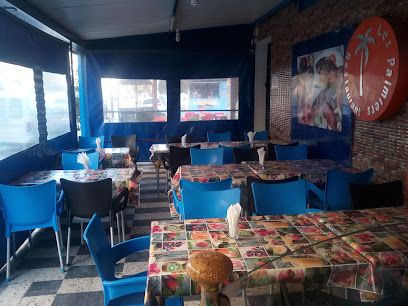
Markets, malls and hidden boutiques
Monoprix
Explore the vibrant Monoprix supermarket in Tabarka for an extensive selection of local and international products, fresh produce, and more.
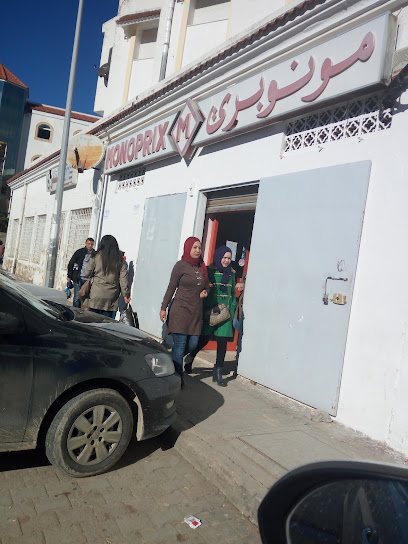
café zmen
Discover Café Zmen in Tabarka, a delightful tea house offering exquisite brews, delicious crepes, and a vibrant atmosphere by the marina.
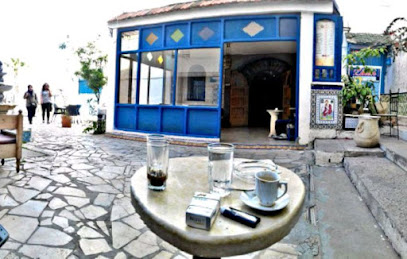
Patisserie Mosaique
Discover the enchanting flavors of Tunisia at Patisserie Mosaique, where exquisite pastries meet artistic inspiration in a cozy café setting.
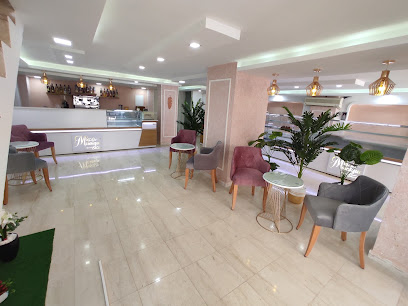
Pâtisserie Monaliza
Discover the sweet side of Tabarka with exquisite pastries and local treats at Pâtisserie Monaliza, the perfect destination for dessert lovers.
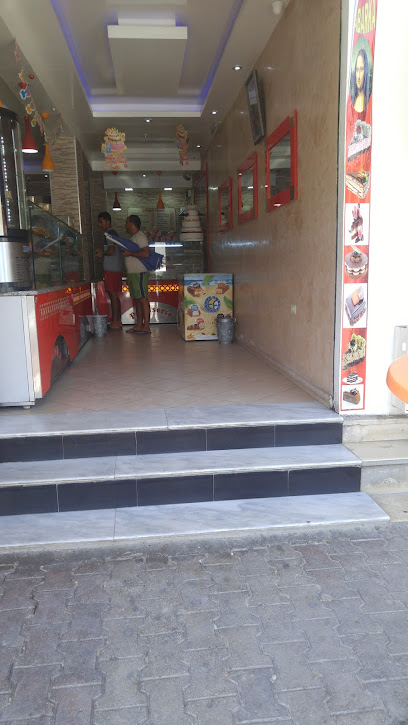
Gamra café.
Experience the warmth of Gamra Café in Tabarka, where every cup of coffee tells a story and local culture comes alive.
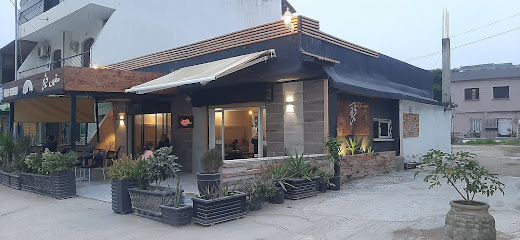
fromagerie jbayna
Explore the exquisite flavors of artisanal cheeses at Fromagerie Jbayna in Tabarka, a must-visit destination for cheese lovers.
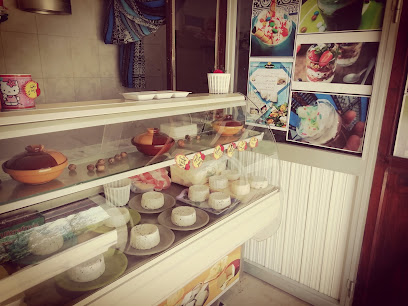
Poisson jalta - أسماك جالطة
Discover the best fresh seafood at Poisson Jalta in Tabarka, where local flavors meet exceptional quality in a charming coastal setting.
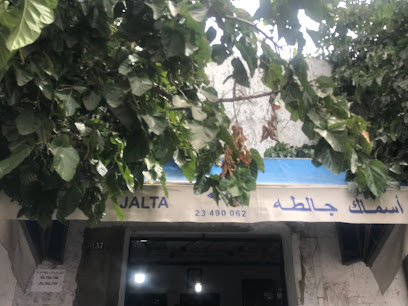
Pâtisserie Dridi Délice
Discover the sweet side of Tabarka at Pâtisserie Dridi Délice, where exquisite pastries and delightful flavors await every visitor.
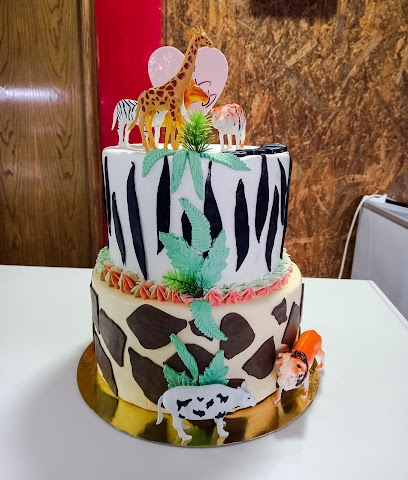
Eva Nature Tabarka
Experience natural beauty and wellness at Eva Nature Tabarka, your serene retreat in the heart of Tunisia's enchanting landscapes.

Vapoteurs de Tabarka
Explore Vapoteurs de Tabarka, Tunisia's premier tobacco shop, offering a vast selection of premium tobacco products and an authentic local experience.
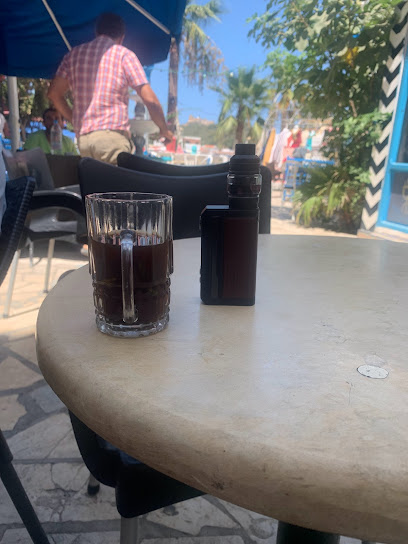
MORE SARL (Mediterranean Outdoor Recreational Equipment)
Discover top-notch fishing gear and outdoor equipment at MORE SARL in Tabarka, the heart of Mediterranean outdoor recreation.
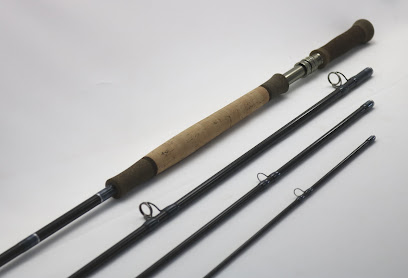
BOX ORANGE TABARKA
Explore the art of Tunisian craftsmanship at Box Orange Tabarka, a delightful furniture store blending tradition with modern design.

El Mazraa
Discover the flavors of Tunisia at El Mazraa, a local grocery store in Tabarka, offering fresh produce, local specialties, and a taste of everyday life.
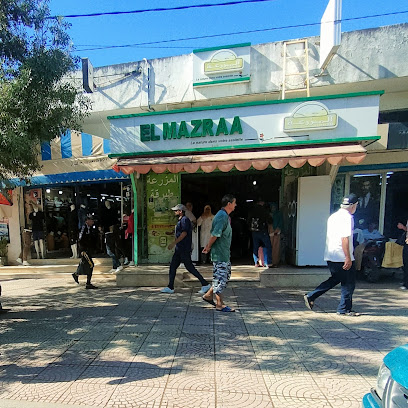
Markt Tabarka
Explore the vibrant Markt Tabarka, a shopping haven in Tunisia that seamlessly blends local culture with modern retail and culinary delights.
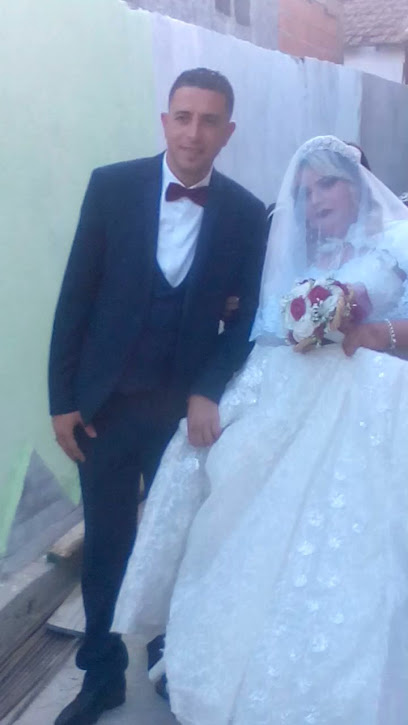
Tabarka Centre
Explore Tabarka Centre in Larmel, Tunisia, a shopping mall that combines local culture, exquisite dining, and entertainment for an unforgettable experience.

Essential bars & hidden hideouts
Restaurant Al MNARA
Experience the best of grilled cuisine at Restaurant Al MNARA in Tabarka, Tunisia, where local flavors and vibrant atmosphere await.
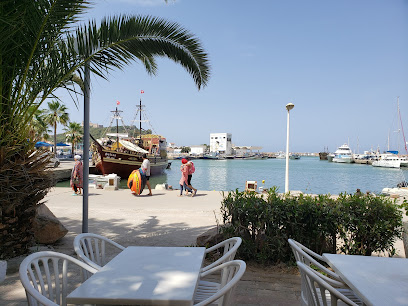
Café Resto Chahrazed
Discover the authentic flavors of Tunisia at Café Resto Chahrazed in Tabarka, where tradition meets delightful culinary creations.
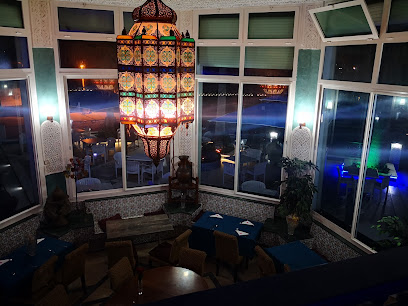
café zmen
Experience the tranquil charm of Café Zmen in Tabarka, where delightful teas, crepes, and stunning marina views await.
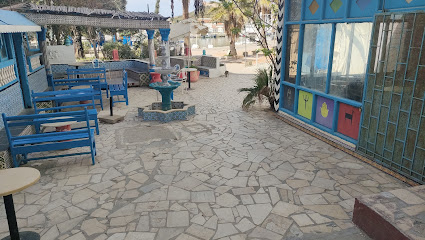
Restaurant le Mondial - مطعم المونديال
Experience the essence of Tunisian cuisine at Restaurant le Mondial, where authentic flavors meet stunning marina views in Tabarka.
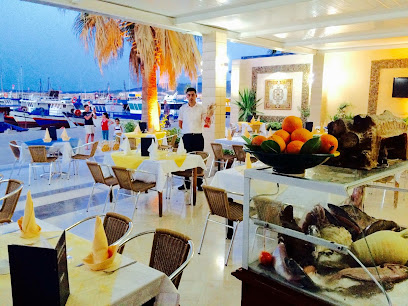
beach club coffee
Discover the serene beauty of Corail Royal Beach Club Coffee in Tabarka, where exquisite flavors meet stunning coastal views.
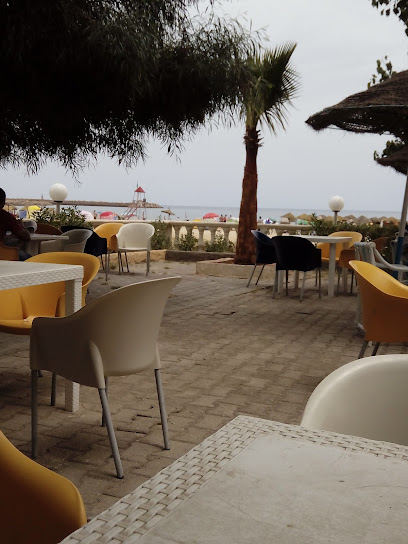
Restaurant Le Festival
Experience the vibrant flavors of Tunisia at Restaurant Le Festival in Tabarka, where culinary tradition meets seaside charm.
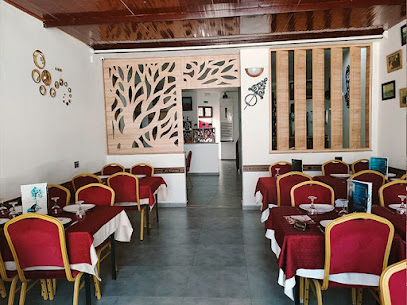
CASA MIA
Discover CASA MIA in Tabarka, where local flavors and international cuisine unite for an unforgettable dining experience.
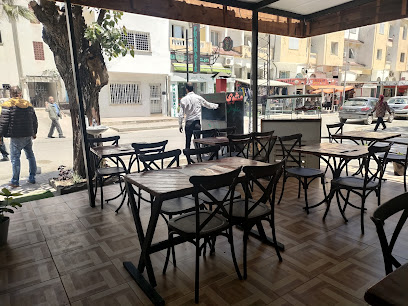
Restaurant le pirate
Experience the best of Tunisian cuisine with stunning marina views at Restaurant le Pirate in Tabarka.
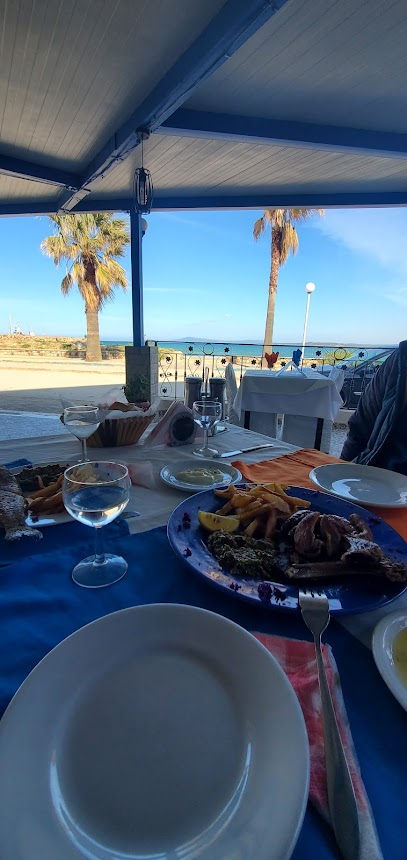
la caza di tabarka
Savor the flavors of Tunisia at La Caza di Tabarka, a must-visit restaurant for an authentic dining experience along the beautiful coast.
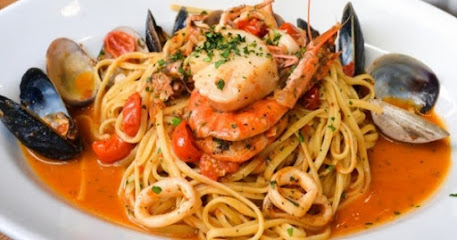
Restaurant le Coin
Experience the flavors of Tunisia at Restaurant le Coin, a cozy dining spot in Tabarka known for its authentic cuisine and charming ambiance.
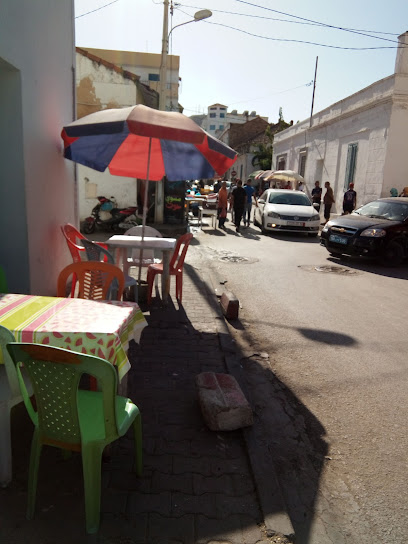
Cubbano club
Discover the vibrant nightlife of Tabarka at Cubbano Club, where lively music and refreshing cocktails create unforgettable memories.
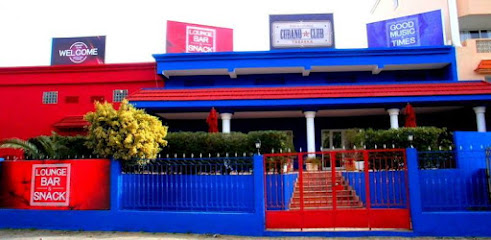
Barberousse
Experience the taste of Tunisia at Barberousse in Tabarka, where fresh ingredients meet local culinary traditions for an unforgettable dining experience.
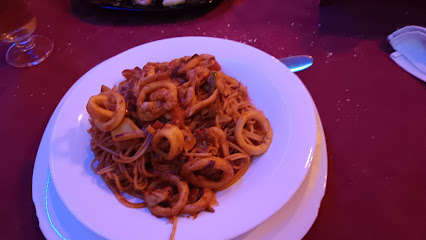
Grandioso
Discover the flavors of Tunisia at Grandioso, a top restaurant in Tabarka known for its fresh seafood and authentic local cuisine.
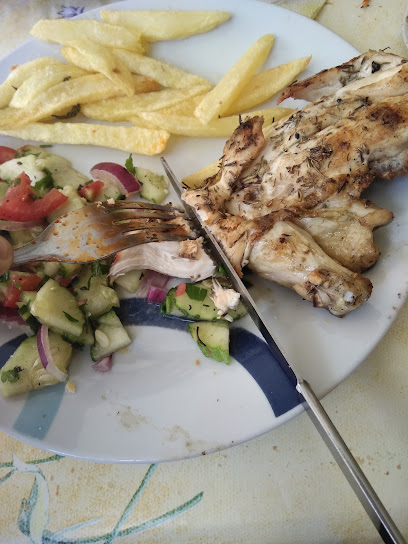
مطعم المهرجان
Experience the vibrant atmosphere and local flavors at مطعم المهرجان, a must-visit bar in Tabarka, Tunisia.
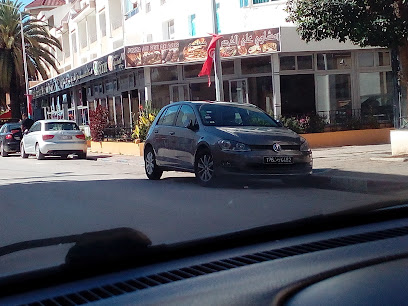
Mlawi chappati diari Tabarka
Discover the authentic taste of Tunisia at Mlawi Chappati Diari in Tabarka, where delicious chappatis and vibrant atmosphere await.
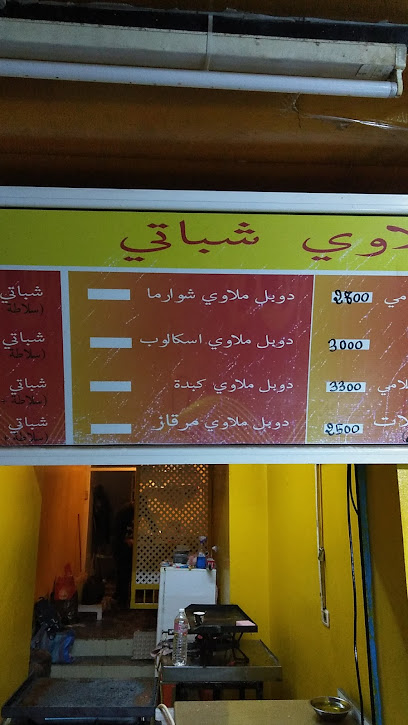
Local Phrases about Tabarka
-
- Helloمرحبا
[marhaba] - Goodbyeوداعا
[wada'an] - Yesنعم
[naam] - Noلا
[la] - Please/You're welcomeمن فضلك
[min fadlik] - Thank youشكرا
[shukran] - Excuse me/Sorryعذرا
[aadhra] - How are you?كيف حالك؟
[kayfa haluk?] - Fine. And you?بخير. وأنت؟
[bikhayr. wa ant?] - Do you speak English?هل تتكلم الإنجليزية؟
[hal tatakallam al'injlizia?] - I don't understandأنا لا أفهم
[ana la afham]
- Helloمرحبا
-
- I'd like to see the menu, pleaseأريد أن أرى القائمة، من فضلك
[urid an ara alqaimah, min fadlik] - I don't eat meatأنا لا آكل اللحوم
[ana la akl allahum] - Cheers!في صحتك!
[fi sahtak!] - I would like to pay, pleaseأود أن أدفع، من فضلك
[awad an adfa', min fadlik]
- I'd like to see the menu, pleaseأريد أن أرى القائمة، من فضلك
-
- Help!مساعدة!
[musa'adah!] - Go away!انصرف!
[ansarif!] - Call the Police!اتصل بالشرطة!
[atasil bialshurta!] - Call a doctor!اتصل بطبيب!
[atasil bitabib!] - I'm lostلقد ضللت
[laqad dalalt] - I'm illأنا مريض
[ana mareed]
- Help!مساعدة!
-
- I'd like to buy...أود أن أشتري...
[awad an ashtari...] - I'm just lookingأنا فقط أتطلع
[ana faqat atatla] - How much is it?كم السعر؟
[kam alsaar?] - That's too expensiveهذا غالي جدا
[hatha ghali jiddan] - Can you lower the price?هل يمكنك تخفيض السعر؟
[hal yumkinuk takhfid alsaar?]
- I'd like to buy...أود أن أشتري...
-
- What time is it?كم الساعة؟
[kam alsa'ah?] - It's one o'clockالواحدة
[alwahidah] - Half past (10)العاشرة والنصف
[al'ashirah walnusf] - Morningالصباح
[alsaabah] - Afternoonالظهر
[aldhuhur] - Eveningالمساء
[almasa] - Yesterdayأمس
[ams] - Todayاليوم
[alyawm] - Tomorrowغدا
[ghadan] - 1واحد
[wahid] - 2اثنان
[ithnan] - 3ثلاثة
[thalatha] - 4أربعة
[arba'a] - 5خمسة
[khamsa] - 6ستة
[sitta] - 7سبعة
[saba'a] - 8ثمانية
[thamania] - 9تسعة
[tasia'a] - 10عشرة
[ashara]
- What time is it?كم الساعة؟
-
- Where's a/the...?أين...؟
[ayn...?] - What's the address?ما هو العنوان؟
[ma huwa al'anaan?] - Can you show me (on the map)?هل يمكنك أن تريني (على الخريطة)؟
[hal yumkinuk an tarini (ala alkhareetah)?] - When's the next (bus)?متى القادم (الحافلة)؟
[mata alqadim (alhafilah)?] - A ticket (to ....)تذكرة (إلى ....)
[tazkirah (ila ....)]
- Where's a/the...?أين...؟
History of Tabarka
-
Tabarka's history dates back to its founding by the Phoenicians in the 6th century BCE. The Phoenicians, renowned seafarers and traders, established Tabarka as a crucial trading post. The strategic coastal location allowed them to engage in maritime trade across the Mediterranean, linking it to major ancient civilizations.
-
In 46 BCE, Tabarka came under Roman control following the defeat of the Carthaginian Empire. The Romans recognized its strategic importance and developed it into a bustling hub. They built roads, aqueducts, and fortifications, and the town flourished as a center of commerce and culture. Remnants of Roman architecture, such as the ruins of an aqueduct and the remains of ancient villas, still testify to this prosperous period.
-
The decline of the Roman Empire saw Tabarka fall into the hands of the Vandals in the 5th century CE. This period was marked by turmoil and instability. However, in the 6th century, the Byzantines recaptured Tabarka, incorporating it into the Byzantine Empire. The Byzantines fortified the town further to protect it from various invasions, leaving behind a legacy of defensive structures.
-
The 7th century saw the Arab conquests sweeping across North Africa, and Tabarka was no exception. Under Arab rule, the town integrated into the Islamic world, experiencing significant cultural and economic transformations. The introduction of Islamic architecture and customs reshaped the town's identity, embedding it deeply in the broader Islamic civilization.
-
In the 16th century, Tabarka was occupied by the Genoese, who were interested in exploiting the region's rich coral reefs. The Genoese built the imposing Genoese Fort, which still stands today as a historical landmark. The coral trade brought wealth and prosperity to the town, making it a significant trade center in the Mediterranean during this period.
-
By the late 16th century, Tabarka fell under Ottoman control, becoming part of the Ottoman Empire. The Ottomans maintained the town's strategic and economic significance. During the Beylical era, Tabarka continued to thrive as a local administrative center, with its diverse population contributing to its rich cultural tapestry.
-
In the late 19th century, Tabarka became part of the French Protectorate of Tunisia. The French influence introduced new architectural styles and modern infrastructure. The town developed into a popular tourist destination, known for its picturesque coastline and ancient ruins. The legacy of the French era is evident in the blend of European and Tunisian cultures seen today.
-
Since Tunisia's independence in 1956, Tabarka has experienced a cultural renaissance. Efforts to preserve its historical sites and promote its cultural heritage have made it a vibrant destination for history enthusiasts and travelers. The annual Tabarka Jazz Festival, held since 1973, is a testament to the town's ongoing cultural evolution, drawing international artists and visitors.
Tabarka Essentials
-
Tabarka is located in the northwestern part of Tunisia, near the Algerian border. The nearest international airport is Tabarka–Ain Draham International Airport (TBJ), which is about 12 kilometers from the town center. While the airport has limited international flights, you can also fly into Tunis-Carthage International Airport (TUN) in Tunis, which is approximately 175 kilometers away. From Tunis, you can take a taxi or a rented car, or use public transportation such as buses or trains to reach Tabarka. The road journey from Tunis typically takes about 2.5 to 3 hours.
-
Tabarka is a relatively small town, making it easy to explore on foot. For longer distances, taxis are readily available and fairly inexpensive. Public buses and louages (shared taxis) connect Tabarka with neighboring towns and cities. Car rentals are also an option for those who prefer to explore the surrounding areas at their own pace. Biking is another viable option for getting around, especially during the pleasant weather months.
-
The official currency in Tunisia is the Tunisian Dinar (TND). Credit cards are accepted in most hotels, restaurants, and larger shops, but it is advisable to carry cash for smaller establishments and markets. ATMs are available in Tabarka, but make sure to withdraw enough cash for excursions outside the town where ATMs might be scarce. Currency exchange services are also available at the airport, banks, and some hotels.
-
Tabarka is generally considered a safe destination for tourists. However, it is always important to exercise standard travel precautions. Avoid walking alone at night in unfamiliar areas and keep an eye on your personal belongings in crowded places. While Tabarka does not have specific high-crime neighborhoods targeting tourists, staying vigilant and aware of your surroundings is always advisable.
-
In case of emergency, dial 197 for police assistance, 190 for medical emergencies, and 198 for fire emergencies. The local hospital is available for medical emergencies, and there are several pharmacies in town where you can purchase over-the-counter medications. It is recommended to have travel insurance that covers medical emergencies and other unexpected incidents.
-
Fashion: Do dress modestly, especially when visiting religious sites. Avoid wearing revealing clothing. Religion: Do respect local customs and traditions. Always cover your head when entering mosques. Public Transport: Do be respectful and give up your seat to elderly passengers. Don’t eat or drink on public transport. Greetings: Do greet people with a handshake. A friendly smile and a 'Salam' (hello) is also appreciated. Eating & Drinking: Do try local delicacies and accept food offerings graciously. Don’t refuse hospitality, as it is considered impolite.
-
To experience Tabarka like a local, visit the local markets where you can buy fresh produce, seafood, and traditional Tunisian goods. Engage with locals, as they are often friendly and willing to share stories about the town's history and culture. Don’t miss the annual Jazz Festival held in July, which attracts musicians and visitors from around the world. For a unique experience, try scuba diving or snorkeling in the crystal-clear waters to explore the rich marine life and coral reefs.
Nearby Cities to Tabarka
-
Things To Do in Bizerte
-
Things To Do in Tunis
-
Things To Do in Hammamet
-
Things To Do in Constantine
-
Things To Do in Sousse
-
Things To Do in Monastir
-
Things To Do in Sfax
-
Things To Do in Setif
-
Things To Do in Bejaia
-
Things To Do in Tozeur
-
Things To Do in Djerba
-
Things To Do in Tizi Ouzou
-
Things To Do in Palermo
-
Things To Do in Xlendi
-
Things To Do in Marsalforn










